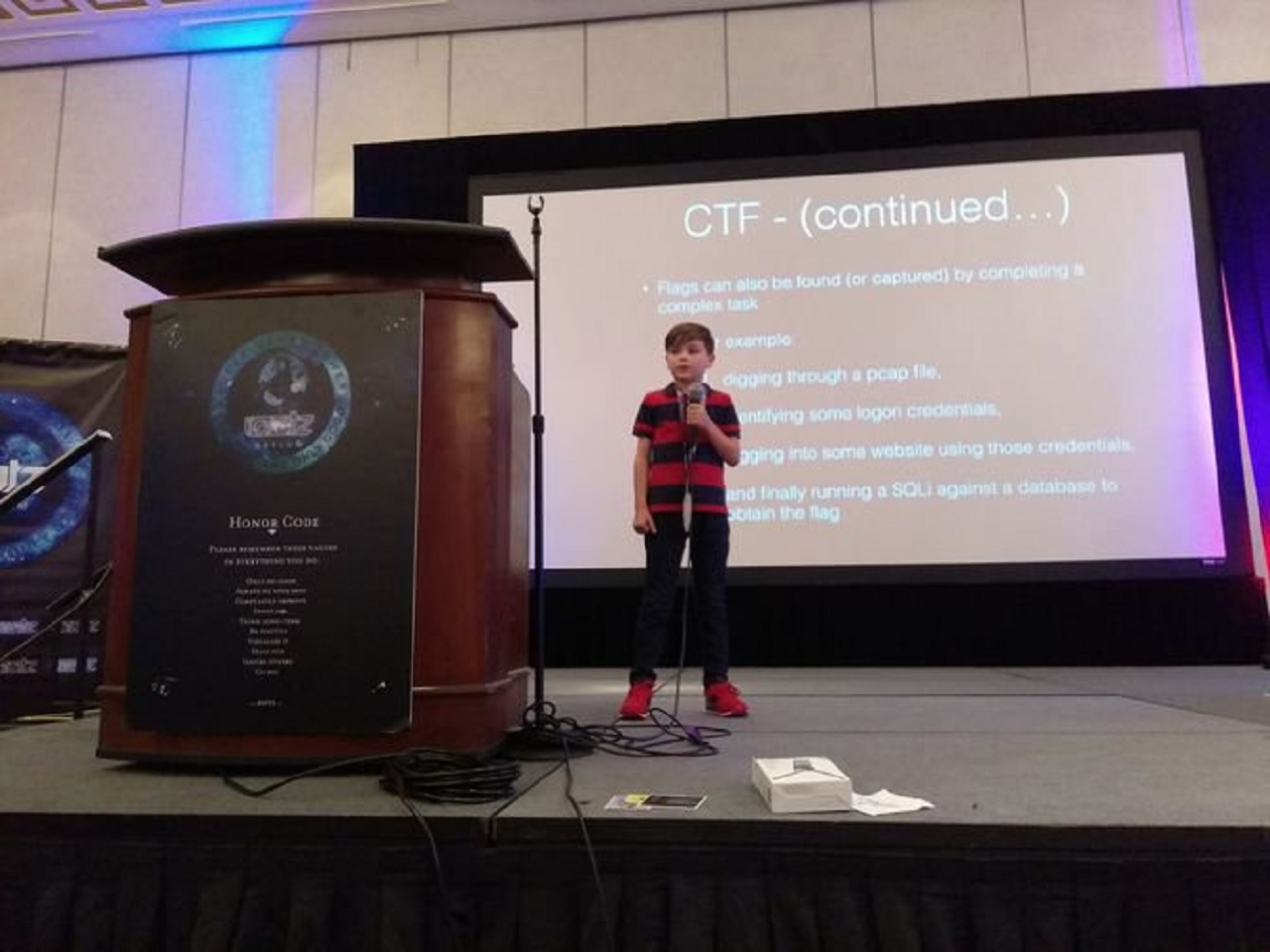General
IT IS A HACKATHON! 11-year-old boy hacks US government website and changed election results at DEFCON

An 11-year-old boy, Emmett Brewster, managed to hack into a replica of Florida’s election results website in 10 minutes, change names and tallies.
Brewster was the fastest of 35 children, ages six to 17, who all hacked into copies of the pseudo-election website of six swing states during the three-day DEFCON security convention.
According to DEFCON, the event was meant to test the strength of U.S. election infrastructure and details of the vulnerabilities would be passed onto the states.
He managed to hack into an imitation Florida state voting website and change the results of the “election” in fewer than 10 minutes.
READ ALSO! TO BLOSSOM A NEW FOUND LOVE! Mother of four hacks husband to death, buries him in their bedroom [Photos]
DEFCON is the world’s larger hacker conference held annually in Las Vegas, where hackers and cybersecurity experts try to break into all kinds of computer security systems, highlighting how easy it can be to manipulate software and hardware. At this year’s conference, DefCon added children to its list of those invited, specifically to try to hack websites in the DEFCON Voting Machine Hacking Village, a part of the hackathon that includes “13 imitation websites linked to voting in presidential battleground states,” according to PBS.
Here’s the DefCon Voting Machine Hacking Village roundup of discoveries for the day! Day 1 / Part 1 pic.twitter.com/ovQs7uX7jK
— DEFCON VotingVillage (@VotingVillageDC) August 11, 2018
Emmett Brewer, the 11-year-old who successfully hacked the replicated Florida voting site, wasn’t the only child who got into the election systems at the conference. In total, about 50 kids ranging in age from 8 to 16 attended the conference, DEFCON said in a tweet, and around 30 of them were able to hack into the imitation election websites.
The National Association of Secretaries of State issued a statement in response to DEFCON hacking voting systems, expressing concern about the event encouraging the mock hacking of official election systems and saying it does not accurately reflect the reality of electronic voting in the U.S.
READ ALSO! SUN MOON UNIVERSITY! Aisha Buhari receives honorary doctorate degree in South Korea [Photos]
“While we applaud the goal of DEFCON attendees to find and report vulnerabilities in election systems it is important to point out states have been hard at work with their own information technology teams…” the statement reads.
“Our main concern with the approach taken by DEFCON is that it utilizes a pseudo-environment which in no way replicates state election systems, networks or physical security. Providing conference attendees with unlimited physical access to voting machines, most of which are no longer in use, does not replicate accurate physical and cyber protections established by state and local governments before and on Election Day.”
-

 Sports22 hours ago
Sports22 hours agoPHOTOS: Arsenal pay tribute to 14-year-old Nigerian killed in London
-

 News11 hours ago
News11 hours agoFormer Minister of Education, Gbagi dies at 62
-

 Metro10 hours ago
Metro10 hours agoEnugu suspends masquerade activities following nurse’s attack in Nsukka
-

 News10 hours ago
News10 hours agoKwara to commence inaugural Hajj flights on May 20
-

 News9 hours ago
News9 hours agoDrama as Wofai Fada’s in-law-to-be reportedly disown engagement
-

 News9 hours ago
News9 hours agoLagos mother demands justice over alleged daughter’s defilement
-

 News4 hours ago
News4 hours agoFCCPC to block loan apps harassing customers




















